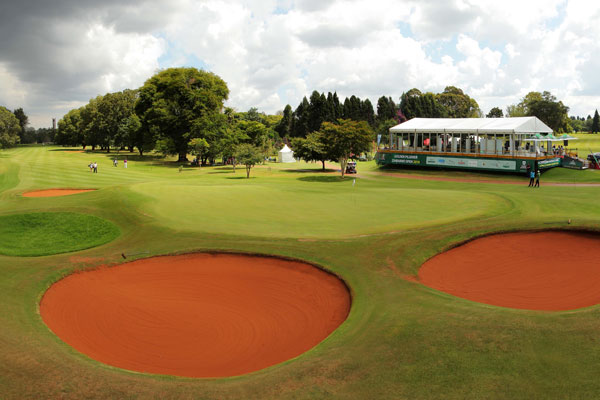
BY NEVANJI MADANHIRE
AN eight-year-old boy cuts a stick out of a tree and with the aid of an adze fashions it into a “golf” club. He places a roundish stone on the ground and hits it with all his might. A handful of friends watching him clap their hands in a round of applause.
That was his first attempt at a golf drive.
The other boys and some girls run around cutting sticks from trees and soon the competition is stiff to see who drives the stones farthest.
The next step: They clear a space in the wood, dig a hole at the centre and begin “putting” the “balls” into the “pot”.
They clear a space in the “bundu” and call it “par-3” and begin hitting the “balls” towards the “putting green”.
Their Mar-a-Lago Resort — US President Donald Trump’s favourite golf course — is shaping up, not exactly on Palm Beach Island, but in the godforsaken Binga, one of the remotest districts of Zimbabwe.
When Tiger Woods was four, he was hitting balls all over the range, but with proper golf clubs. But these kids have no access to golf clubs, but they all wish to be the next Tiger Woods.
- Chamisa under fire over US$120K donation
- Mavhunga puts DeMbare into Chibuku quarterfinals
- Pension funds bet on Cabora Bassa oilfields
- Councils defy govt fire tender directive
Keep Reading
They have become masters of improvisation thanks to one man: TA Mabikacheche, who has traversed the whole length and breadth of Zimbabwe introducing golf to rural and peri-urban communities where it was virtually unknown or considered an elite sport.
Indeed the most successful Zimbabwean golfers — former world number One Nick Price, Tony Johnstone and Mark McNulty — have come from what’s considered the elite white community cementing the belief that golf is a white minority sport.
Mabikacheche would like to bust the elitism in golf and he has been on it since 1999 when he held his first workshop in a remote impoverished community. Now some of his products have turned pro and are playing on the African Tour, and several are on the verge of following suit.
Mabikacheche now needs your help.
He has appealed to golfers around the country to donate all the golf equipment they no longer use; the response has been extremely good. But he needs more such donations.
“The project has become way too big for me to manage on my own,” said Mabikacheche. “I think it’s the most exciting sport development project in Africa.”
Now he has a warehouse full of donated equipment that has to be distributed to all the 57 districts of the country where it is needed. He, therefore, needs help with transportation. A donation of an off-road vehicle would be very helpful.
To ensure the sustainability of the project, he has been holding train-the-trainer workshops at strategic locations around the country. And donation of a minibus would help him ferry his team around.
His team of trainers needs subsistence and they visit these remote areas. He needs financial assistance to continue. Help Mabikacheche raise US$30 000 so he can fulfil his dream of producing world-class golfers from poor communities.











